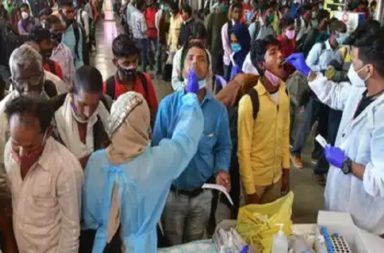Noting that the mid-day meal scheme represents the lifeline for millions of school children in the country, the UN WFP India has said as the schools re-open, the scheme will also need to be reactivated with the provision of hot, cooked meals. The UN’s World Food Programme country director Bishow Parajuli said India offers a shining example through its existing food safety nets and the collaborative response it undertook to try and ensure that the coronavirus-triggered lockdowns did not disrupt the nutrition of the school children.
Schools across the country were closed in March last year to curb the spread of COVID-19. They were partially reopened in some states from October 15. Calling the mid-day meal scheme one of the three main food-based safety nets in India, reaching close to 10 crore school children with hot, cooked meals, Parajuli said in response to the lockdown, schools had to be closed across the country, but to ensure the continuity of the scheme, the Centre, states and Union territories issued guidelines to provide the MDM entitlement to children in kind or cash or both.
“The involvement of state agencies, civil society organisations and multilateral agencies to avert hunger ensured collaboration, including the creation of a standard operating procedure for procuring, preparing and serving mid-day meals,” he told PTI. “The MDM scheme represents predictable support and the lifeline for millions of school children in the country and has a significant impact on the children’s daily diet. As the schools reopen, this all-important scheme will also need to be re-activated with the provision of hot, cooked meals,” Parajuli said.
A recent UN report presented evidence on the potential short and long-term negative effects of the disruption to school meal schemes during the COVID-19 pandemic globally. It shows how vulnerable the children participating in these schemes are, how coping and mitigation measures are often only short-term solutions and how prioritising the re-opening of schools is critical.





